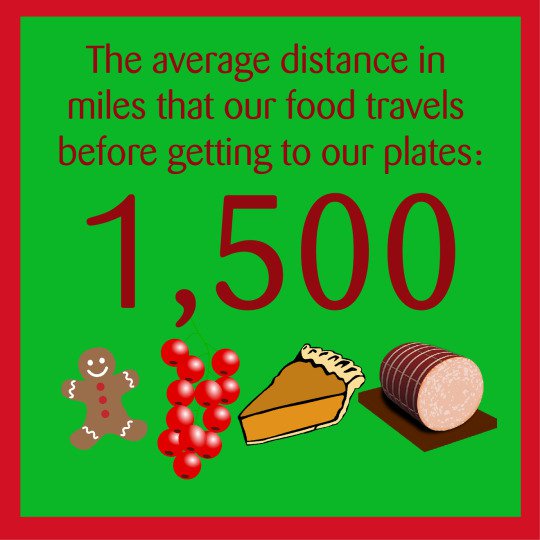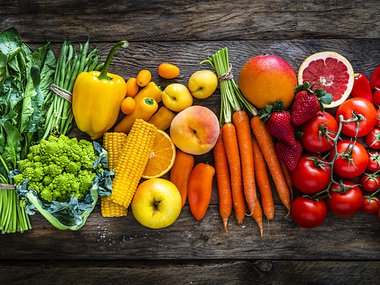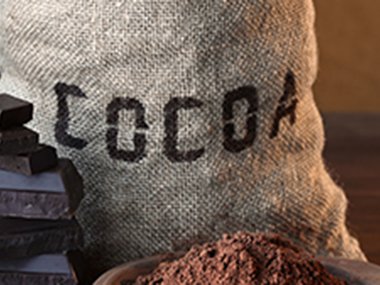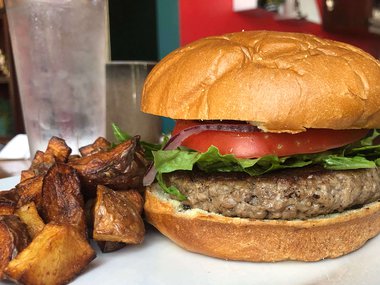Happy holidays, science fans! As you know, between now and the end of the year, we Americans will be doing a lot of festive feasting. From holiday parties to dinner outings with old friends or eating those traditional family meals, we’ll be doing a lot of consuming. Similar to literally everything else in the universe, traditional meals are subject to change as well. How are we changing how we eat?
While traditional meals are a very valuable part of our cultural fabric, the ingredients in those meals are starting to change a little. Humans have loved altering traditions to make them more reflective of our own creativity for quite some time now. For example, the traditional ingredients for fruitcakes were replaced with more modern versions. So, it makes sense that our traditional holiday meals are starting to see some new ingredients and side dishes, thanks to health and environmentally conscientious shoppers.
A survey conducted by Datassential showed that 84% of grocery consumers want the big chain stores to carry and promote more locally sourced items and organic produce. This is a big sign that the individuals buying groceries are also concerned with the health of their bodies and their surrounding ecosystems. Locally sourced foods have many health benefits, like higher nutrition levels, fewer items chemically treated to withstand long deliveries, and developing a personal relationship with food sources for further questions and accountability. At the same time, reducing the transportation of these foods will lower the carbon footprint of your food and the impact it has on the environment. As it stands right now, most of our foods and ingredients for meals travel nearly 1500 miles before reaching our tables. That is a lot of transportation stress that we’re putting on the food industry at a financial capacity and an environmental stress from the heat trapping gases that are released by the delivery vehicles.

In addition, there’s another huge movement that is starting to happen across the nation. Nearly a quarter of the nation is using fewer and fewer meat options. While nearly 25% of the consumers drastically reduced their meat consumption in the last few years, the economic impact has also been felt by meat-substitute industries. The meat alternatives industry has actually almost doubled in the past five years and expects to see a much larger growth as future generations start to embrace meat-free diets. The economic impact here is also partnered with a big environmental one. It can take anywhere from 400 to 800 gallons of water to produce just one pound of ground beef. Information like this has been spreading quickly through eco-friendly foodie circles and is starting to make its way into decisions for meal planning at schools across the nation.
Locally sourced food is finding more avenues by which to market their availability to local consumers as well. Websites and social media groups are quickly popping up all over the nation to help consumers understand the many benefits and options in buying local. Here in Virginia, we have a myriad of locally grown foods that are consumed year round in homes, restaurants, and schools. If you’re interested in seeing what is available near you check out this website as a fun place to start, https://www.buylocalvirginia.org/.
As these locally sourced foods continue to make their way into the center stage of our culinary minds, the more economic, health, and environmental impacts will be felt. Locally sourced foods also create a decent defense from massive national economic trends. Here’s what David Boyle from the New Economics Foundation had to say about areas that participate in local foods as a part of their economy.
“For communities, this is a hopeful message in a recession because it’s not about how much money you’ve got, but how much you can keep circulating without letting it leak out.”
So, while traditional meals are a part of our cultural fabric, the ingredients changing to meet modern needs is not a terrible thing. This allows for more creative recipes, new traditions to hand down through out generations, getting into the spirit of supporting your immediate community, and helping promote environmental advocacy.
But, what about the king of holiday foods? What about fruitcake? Well, most people still don’t like fruitcake. Some things just never change.


